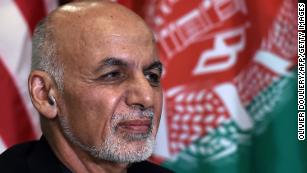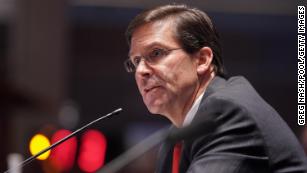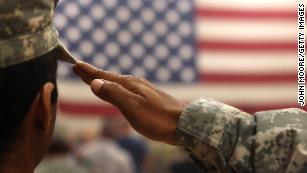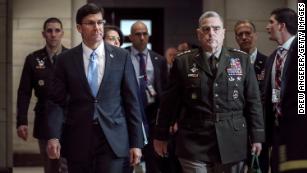Exploring Al-Qa’ida’s Russian Connection
Exploring Al-Qa’ida’s Russian Connection
June 10, 2014
[Note: This is an unusually controversial piece, even for my blog, for reasons that will quickly become obvious. Linkages between Al-Qa’ida and Russian intelligence have been discussed in hushed tones among spies in many countries, for years, and this matter has been a “hobby file” of mine for some time. Here is a think-piece on it, in the hope of spurring additional discussion and research into this important yet murky matter. This is particularly necessary given rising tensions between Moscow and the West at present. Considering the subject, I have eschewed my usual hyperlinks in favor of proper end-notes.]
“There are two histories: The official history, mendacious, which is given to us; and the secret history, where you find the real causes of events, a shameful history.”
– Honoré de Balzac
The history of al-Qa’ida has been extensively documented in many languages. Since the 9/11 attacks on the United States, massive research has been devoted to uncovering the origins of the global jihad movement, its strategies, concepts of operations, and ultimate aspirations.[1] Such works have been assisted by the willingness of al-Qa’ida to talk openly about some parts of its narrative. While many aspects of al-Qa’ida’s almost thirty-year history have been examined in impressive detail, other parts of the story remain shrouded in mystery. In some cases, gaps are caused by a lack of information available to analysts and researchers. However, other underreported stories in the development of the global jihad movement remain untold, or unexplained, by apparent design.
No greater example exists of this “blank page” in the al-Qa’ida story than its connections to foreign intelligence services. While it is generally known that bin Laden’s legionaries have fostered ties, at times, with secret services as varied as the Saudi, Pakistani, Sudanese, Iranian, Iraqi, and Bosnian, few details have emerged, thanks to the desire on all sides to keep the saga out of the media spotlight.[2] The murkiest of these relations, however, has been the connection between al-Qa’ida and Russian intelligence. While the outlines of the story have been known for years, and even admitted by Moscow and the mujahidin, details remain elusive. Moreover, asking important questions about this relationship seems to be an issue few appear interested in probing deeply, even in the United States.
That Dr. Ayman al-Zawahiri, bin Laden’s right-hand man and the leader of the global jihad movement since bin Laden’s death in May 2011, spent almost a half-year in the mid-1990s in the custody of Russian intelligence is admitted by both sides and is a matter of public record.[3] Just as significant, Zawahiri’s Russian sojourn occurred at a pivotal point in the development of al-Qa’ida; the shift in strategy, resulting in attacks on the “far enemy” (i.e. the United States), the road leading to 9/11, occurred after Zawahiri’s imprisonment by the Russians.
The outline of the story is clear.[4] At about 4 am on December 1, 1996, Zawahiri was detained in southern Russia while attempting to enter Chechnya, the breakaway province of Moscow recently roiled by war. Accompanying the doctor in the van were two other radicals from Egypt and a Chechen guide. The Egyptians, wanted men in their home country and several others, were traveling under aliases; Zawahiri was “Abdullah Imam Mohammed Amin,” according to the Sudanese passport he carried, which had stamps from many countries – among them Yemen, Malaysia, Singapore – he had visited in the 20 months before his arrest.
Zawahiri’s two Egyptian companions were veteran mujahidin from Egyptian Islamic Jihad (EIJ), the group Zawahiri had been associated with for years and had headed since 1993. Ahmad Salama Mabruk ran EIJ’s activities in Azerbaijan under the cover of a trading firm called Bavari-C, while Mahmud Hisham al-Hennawi had extensive experience on jihad in parts of Asia.
The three Arabs were extensively interrogated by the Russian Federal Security Service (FSB), which noted the inmates’ religious fervor, and the surprising support they received from Islamic organizations around the Muslim world. Twenty-six imams signed an appeal for the release of the three “businessmen”; others denounced Russian authorities of doing “the devil’s work” by detaining the hard-praying Muslims.
The FSB had ample reason to doubt the Arabs’ cover story. Among the items confiscated from the trio included details about bank accounts in Hong Kong, mainland China, Malaysia, and the U.S. (specifically St. Louis), plus substantial cash in seven currencies. Their laptop computer was seized and subjected to forensic analysis by the FSB. “Mr. Amin,” whose Sudanese passport depicted a Western-dressed middle-aged man with a very short beard, arrived in Russia possessing two forged graduation certificates from Cairo University’s medical faculty, with differing dates. FSB investigation of Bavari-C, the EIJ front company in Baku, quickly determined that no such firm existed in Azerbaijan.
Radical Muslims in Russia, including one member of the Duma, pleaded for their release, explaining that the Arabs had come to Russia to “study the market for food trade.” Various activists from across the region likewise wrote letters on the men’s behalf, claiming they embodied “honesty and decency”; the advocates included leading Arab mujahidin, among them Tharwat Salah Shehata, later head of EIJ. When Shehata got permission to visit “Mr. Amin” in his prison cell, he was given an encrypted letter by the inmate; after the visit, the FSB claimed to have found $3,000 in the cell occupied by the Arabs.
When the case finally went to court in April 1997, “Mr. Amin” prayed hard and lied effectively, claiming that he had entered Russia “to find out the price for leather, medicine, and other goods.” Rejecting the prosecution’s request for a three-year sentence, the judge gave them six months each; almost immediately they were released, time served. The FSB returned the men their possessions, including the cash, communications gear, and the laptop. After their release, Zawahiri spent ten days clandestinely meeting with Islamists in Dagestan, which presumably had been the original purpose of his trip to the region. Shortly thereafter, he headed for Afghanistan to establish his fateful alliance with bin Laden, which was cemented in the mid-February 1998 announcement of a new partnership between the men and their organizations in a Global Islamic Front for Jihad against Jews and Crusaders. Thus was al-Qa’ida officially born and the path to 9/11 was established.
Zawahiri has been tight-lipped about his half-year in Russia; his numerous writings and pronouncements about his life barely mention the tale. “God blinded them to our identities,” he explained. The FSB agrees that they failed to identify the leading holy warrior. “In 1997, Russian special services were not aware of al-Zawahiri,” elaborated an FSB spokesman in 2003: “However, later, using various databases, we managed to identify this former detainee.”[5]
There are many reasons to doubt the official story told by both sides in the affair. In the first place, Zawahiri was one of the world’s most wanted terrorists in 1996, having played a leading role in the assassination of President Anwar Sadat in 1981; the doctor’s role in the subsequent public trial was televised in many countries. He was hardly a secret mujahid. Furthermore, it is difficult to believe that a security service as proficient and thorough as the FSB did not have its interest piqued by the appearance of three Arab mystery men, bearing multiple identities and cash, in the middle of a warzone. It is equally difficult to accept that the FSB was unable to uncover the mysteries contained in Zawahiri’s laptop – as the Americans would do after many such laptops belonging to al-Qa’ida leadership were captured in Afghanistan after 9/11 – had the Russians really wanted to. Last, it can be assumed that the FSB would have tortured the Arabs to obtain information, had that been deemed necessary; and Zawahiri’s breaking by the Egyptian security service through torture in the 1980s is a matter of public record, and a subject of some remorse by the al-Qa’ida leader.
Exploring Al-Qa’ida’s Russian Connection
June 10, 2014
[Note: This is an unusually controversial piece, even for my blog, for reasons that will quickly become obvious. Linkages between Al-Qa’ida and Russian intelligence have been discussed in hushed tones among spies in many countries, for years, and this matter has been a “hobby file” of mine for some time. Here is a think-piece on it, in the hope of spurring additional discussion and research into this important yet murky matter. This is particularly necessary given rising tensions between Moscow and the West at present. Considering the subject, I have eschewed my usual hyperlinks in favor of proper end-notes.]
“There are two histories: The official history, mendacious, which is given to us; and the secret history, where you find the real causes of events, a shameful history.”
– Honoré de Balzac
The history of al-Qa’ida has been extensively documented in many languages. Since the 9/11 attacks on the United States, massive research has been devoted to uncovering the origins of the global jihad movement, its strategies, concepts of operations, and ultimate aspirations.[1] Such works have been assisted by the willingness of al-Qa’ida to talk openly about some parts of its narrative. While many aspects of al-Qa’ida’s almost thirty-year history have been examined in impressive detail, other parts of the story remain shrouded in mystery. In some cases, gaps are caused by a lack of information available to analysts and researchers. However, other underreported stories in the development of the global jihad movement remain untold, or unexplained, by apparent design.
No greater example exists of this “blank page” in the al-Qa’ida story than its connections to foreign intelligence services. While it is generally known that bin Laden’s legionaries have fostered ties, at times, with secret services as varied as the Saudi, Pakistani, Sudanese, Iranian, Iraqi, and Bosnian, few details have emerged, thanks to the desire on all sides to keep the saga out of the media spotlight.[2] The murkiest of these relations, however, has been the connection between al-Qa’ida and Russian intelligence. While the outlines of the story have been known for years, and even admitted by Moscow and the mujahidin, details remain elusive. Moreover, asking important questions about this relationship seems to be an issue few appear interested in probing deeply, even in the United States.
That Dr. Ayman al-Zawahiri, bin Laden’s right-hand man and the leader of the global jihad movement since bin Laden’s death in May 2011, spent almost a half-year in the mid-1990s in the custody of Russian intelligence is admitted by both sides and is a matter of public record.[3] Just as significant, Zawahiri’s Russian sojourn occurred at a pivotal point in the development of al-Qa’ida; the shift in strategy, resulting in attacks on the “far enemy” (i.e. the United States), the road leading to 9/11, occurred after Zawahiri’s imprisonment by the Russians.
The outline of the story is clear.[4] At about 4 am on December 1, 1996, Zawahiri was detained in southern Russia while attempting to enter Chechnya, the breakaway province of Moscow recently roiled by war. Accompanying the doctor in the van were two other radicals from Egypt and a Chechen guide. The Egyptians, wanted men in their home country and several others, were traveling under aliases; Zawahiri was “Abdullah Imam Mohammed Amin,” according to the Sudanese passport he carried, which had stamps from many countries – among them Yemen, Malaysia, Singapore – he had visited in the 20 months before his arrest.
Zawahiri’s two Egyptian companions were veteran mujahidin from Egyptian Islamic Jihad (EIJ), the group Zawahiri had been associated with for years and had headed since 1993. Ahmad Salama Mabruk ran EIJ’s activities in Azerbaijan under the cover of a trading firm called Bavari-C, while Mahmud Hisham al-Hennawi had extensive experience on jihad in parts of Asia.
The three Arabs were extensively interrogated by the Russian Federal Security Service (FSB), which noted the inmates’ religious fervor, and the surprising support they received from Islamic organizations around the Muslim world. Twenty-six imams signed an appeal for the release of the three “businessmen”; others denounced Russian authorities of doing “the devil’s work” by detaining the hard-praying Muslims.
The FSB had ample reason to doubt the Arabs’ cover story. Among the items confiscated from the trio included details about bank accounts in Hong Kong, mainland China, Malaysia, and the U.S. (specifically St. Louis), plus substantial cash in seven currencies. Their laptop computer was seized and subjected to forensic analysis by the FSB. “Mr. Amin,” whose Sudanese passport depicted a Western-dressed middle-aged man with a very short beard, arrived in Russia possessing two forged graduation certificates from Cairo University’s medical faculty, with differing dates. FSB investigation of Bavari-C, the EIJ front company in Baku, quickly determined that no such firm existed in Azerbaijan.
Radical Muslims in Russia, including one member of the Duma, pleaded for their release, explaining that the Arabs had come to Russia to “study the market for food trade.” Various activists from across the region likewise wrote letters on the men’s behalf, claiming they embodied “honesty and decency”; the advocates included leading Arab mujahidin, among them Tharwat Salah Shehata, later head of EIJ. When Shehata got permission to visit “Mr. Amin” in his prison cell, he was given an encrypted letter by the inmate; after the visit, the FSB claimed to have found $3,000 in the cell occupied by the Arabs.
When the case finally went to court in April 1997, “Mr. Amin” prayed hard and lied effectively, claiming that he had entered Russia “to find out the price for leather, medicine, and other goods.” Rejecting the prosecution’s request for a three-year sentence, the judge gave them six months each; almost immediately they were released, time served. The FSB returned the men their possessions, including the cash, communications gear, and the laptop. After their release, Zawahiri spent ten days clandestinely meeting with Islamists in Dagestan, which presumably had been the original purpose of his trip to the region. Shortly thereafter, he headed for Afghanistan to establish his fateful alliance with bin Laden, which was cemented in the mid-February 1998 announcement of a new partnership between the men and their organizations in a Global Islamic Front for Jihad against Jews and Crusaders. Thus was al-Qa’ida officially born and the path to 9/11 was established.
Zawahiri has been tight-lipped about his half-year in Russia; his numerous writings and pronouncements about his life barely mention the tale. “God blinded them to our identities,” he explained. The FSB agrees that they failed to identify the leading holy warrior. “In 1997, Russian special services were not aware of al-Zawahiri,” elaborated an FSB spokesman in 2003: “However, later, using various databases, we managed to identify this former detainee.”[5]
There are many reasons to doubt the official story told by both sides in the affair. In the first place, Zawahiri was one of the world’s most wanted terrorists in 1996, having played a leading role in the assassination of President Anwar Sadat in 1981; the doctor’s role in the subsequent public trial was televised in many countries. He was hardly a secret mujahid. Furthermore, it is difficult to believe that a security service as proficient and thorough as the FSB did not have its interest piqued by the appearance of three Arab mystery men, bearing multiple identities and cash, in the middle of a warzone. It is equally difficult to accept that the FSB was unable to uncover the mysteries contained in Zawahiri’s laptop – as the Americans would do after many such laptops belonging to al-Qa’ida leadership were captured in Afghanistan after 9/11 – had the Russians really wanted to. Last, it can be assumed that the FSB would have tortured the Arabs to obtain information, had that been deemed necessary; and Zawahiri’s breaking by the Egyptian security service through torture in the 1980s is a matter of public record, and a subject of some remorse by the al-Qa’ida leader.









